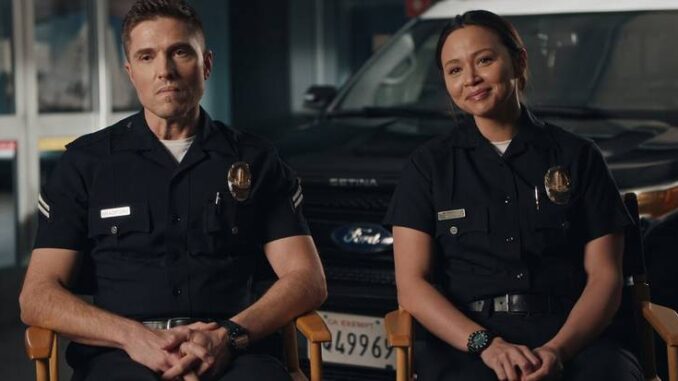
Beyond the Badge: The Real Reason "The Rookie" Documentary Episodes Keep Viewers Hooked
"The Rookie" has carved a niche for itself within the crowded landscape of police procedurals. It's not just the fast-paced action, the captivating crimes, or the charming ensemble cast that draws audiences in. What truly sets the show apart, particularly in its documentary-style episodes, is its clever exploitation of fundamental human desires: to witness authentic experience, to understand the complexities of power, and ultimately, to reaffirm our own values and beliefs in the face of challenging realities. These documentary installments, often interspersed throughout the regular season, offer a glimpse behind the curtain, a faux-reality that elevates the drama from simple entertainment to a compelling exploration of modern policing.
One of the most potent draws is the illusion of authenticity. In a world saturated with heavily scripted and meticulously edited content, the documentary format offers a seductive promise of unfiltered experience. The shaky camera work, the snippets of spontaneous dialogue, and the apparent absence of theatrical flourishes create a sense of immediacy and rawness. Viewers are invited to believe they are privy to the real-life dramas unfolding on the streets of Los Angeles, experiencing the pressures and anxieties of these officers firsthand. This feigned access, even knowing it's mediated through the lens of television, allows viewers to engage on a more emotional level. We’re not just watching actors; we’re watching "real" people grappling with life-or-death situations, making split-second decisions with potentially devastating consequences. This perceived authenticity fosters empathy, urging us to invest in the characters and their stories in a way that traditional narratives often struggle to achieve.
Furthermore, the documentary format allows "The Rookie" to delve into the complexities of power in a way that feels more nuanced and thought-provoking. While the regular episodes often present a straightforward good-versus-evil dynamic, the documentary episodes offer glimpses into the moral ambiguities inherent in policing. We see the officers' frustrations with bureaucratic red tape, their struggles to navigate public perception, and the toll that constant exposure to violence and trauma takes on their mental and emotional well-being. These moments of vulnerability and self-doubt humanize the characters, blurring the lines between law enforcement and the everyday citizen. We witness the delicate balance they must maintain: upholding the law while navigating the social and economic realities that often contribute to crime. This exploration of power, its potential for abuse and its necessity for maintaining order, compels viewers to confront uncomfortable truths about the role of law enforcement in society and the challenges inherent in their mission.
Finally, and perhaps most importantly, the documentary episodes provide viewers with an opportunity to reaffirm their own values and beliefs. By presenting ethical dilemmas and showcasing the diverse responses of the officers, the show invites viewers to engage in a process of self-reflection. We are forced to ask ourselves: What would I do in this situation? How do I feel about the use of force? What constitutes justice in this particular context? The characters, with their varied backgrounds and perspectives, serve as stand-ins for different viewpoints, allowing viewers to explore the complexities of these issues without feeling directly confronted. Whether we agree or disagree with the officers' decisions, the documentary format fosters a sense of active participation, prompting us to articulate and defend our own moral compass. This process of internal dialogue is ultimately deeply satisfying, as it allows us to solidify our sense of self and our place within a complex and often contradictory world.
In conclusion, the allure of "The Rookie's" documentary episodes lies far beyond the superficial thrill of police work. It is a carefully constructed illusion that taps into our deepest desires for authentic experience, nuanced understanding of power, and reaffirmation of our own values. By blurring the lines between reality and fiction, these episodes invite us to become active participants in the drama, forcing us to confront difficult questions and ultimately leaving us with a richer and more complex understanding of the world around us. The show is not just entertaining; it is, in its own way, a mirror reflecting our own anxieties and aspirations, making it a uniquely compelling viewing experience.